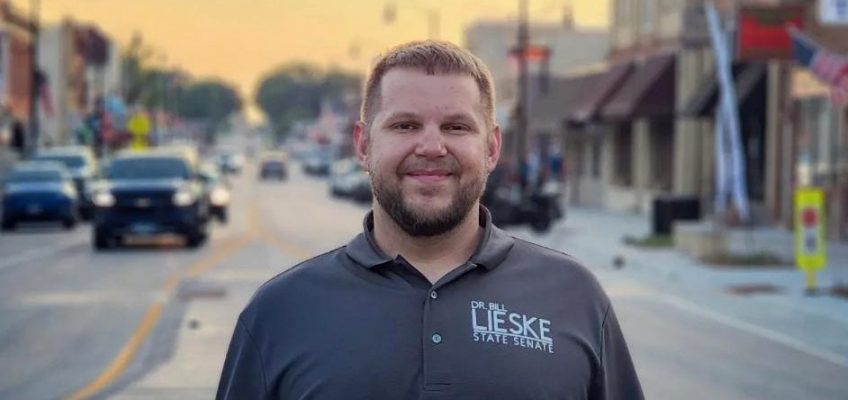Minnesota Sen. Bill Lieske introduced a bill Wednesday that, if passed, could limit where new data centers can be built.
The bill would require data centers spanning more than 800,000 square feet to be constructed under a conditional use permit in an industrial district, a contrast to current zoning laws that allow for the centers to be built in mixed-use commercial industrial areas.
Minnesota Sen. Bill Lieske (Courtesy photo)
“By no means is this an anti-data center bill. It’s meant to be a guideline for where they can be placed,” said Lieske, a Republican representing parts of Dakota County including Farmington.
Lieske, chief author of the bill, said it is a bipartisan effort with co-authors including DFL Sens. Erin K. Maye Quade and Judy Seeberger.
The bill defines “industrial district” as an area of land that allows manufacturing facilities.
By restricting data centers to such properties, Lieske said, “people will not have to live within 250 feet of a data center.”
Lieske has already received praise from some Farmington residents who are suing the city over a cluster of data centers to be built near their neighborhoods.
The project, called the Farmington Technology Park, could result in up to 12 data center buildings totaling over 2.5 million square feet. Tract, the developer for the project, said at full buildout the project could approach $5 billion.
Eight miles north in Rosemount, Meta, the parent company of Facebook, is constructing an $800 million data center spanning some 700,000 square feet, just under the threshold described in the bill.
Related Articles
Black Entrepreneurs Day to return to the Minnesota Capitol for third year
Peter Langworthy: Condescending arrogance is self-defeating. We Democrats need to be more truly liberal
The 2025 Minnesota legislative session is off to a rough start. How did we get here, and what’s next?
Joe Soucheray: House DFL rolls by different rules than the rest of us. About going to work, for example.
MN Supreme Court says Walz must delay special election, extending GOP’s House advantage
Data centers over 800,000 square feet are considered “hyper-scale,” Lieske said, as they use significant amounts of water and electricity.
In terms of pushback on the bill, “Some representatives are concerned with removing the rights of local government bodies,” Lieske said Wednesday.
“We need data centers, it’s necessary, let’s just do it wisely,” he said.
If passed, the bill notes an effective date of June 20 and “applies to enterprise data centers constructed on or after that date.”
Rep. Drew Roach, a newly-elected Republican representing Farmington, will carry the companion bill in the House, Lieske said.


Leave a Reply